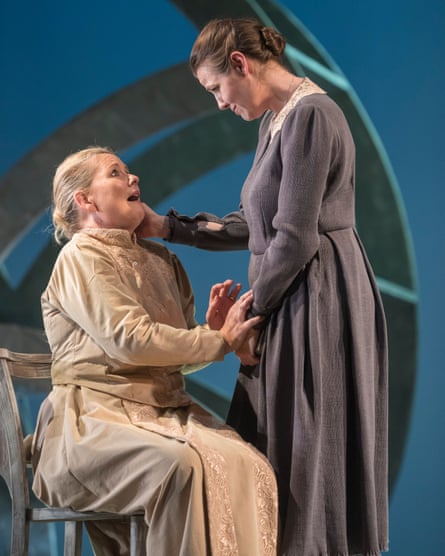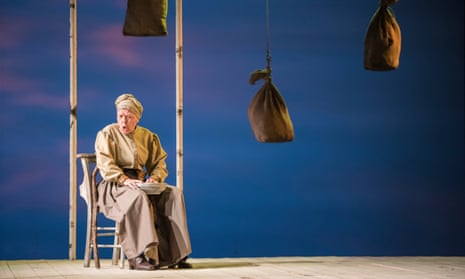The tragedy of Leoš Janáček’s Jenůfa – its painful love and infanticide – never fails to stab at the heart. The first act is deceptive, taking its time to establish the humdrum and claustrophobic nature of life: from the opening bars, the xylophone’s monotone rattle captures the turning mill wheel. Yet Janáček’s concern is with the internal workings of the mill family and, in this new production by Longborough Festival Opera, its passions and motives as played out across three generations are unmistakable.
Relationships in this opera, however, can be confusing – even the composer had trouble explaining to his publisher who was who. Essentially, of Grandmother Buryovka’s three grandchildren by her two sons, the two half-brothers Steva and Laca are in love with their cousin Jenůfa. Steva’s inheritance of the mill at the expense of his half-brother causes the bad blood. The strong tenor voices of Andrew Rees as Steva (the charming but irresponsible drinker by whom Jenůfa is pregnant) and Daniel Norman (the disgruntled but eventually gracious Laca) made for feisty portrayals.

Driving the opera, however, is the central relationship of Jenůfa and her stepmother, the feared and respected village sacristan Kostelnička. The role is often given to a soprano who has previously sung Jenůfa and has aged into the role of the older woman. Here the mezzo Gaynor Keeble gave an intelligent performance. She was always in control of the considerable range, powerfully realising the sacristan’s authority as the conscience of her community, her perception of the shame of Jenůfa’s pregnancy and, after murdering the newborn baby, the Kostelnička’s unhinging guilt. The basic goodness of Lee Bisset’s Jenůfa was always palpable and the pain at the loss of her baby was acute. By the day of her wedding to Laca, the shock at discovering the tiny corpse locked in deep ice over the winter – and still identifiable as her child – was more profound again.
Histrionics are not part of Bisset’s approach: her body language was always controlled. While her warm vocal tone was slightly less voluptuous than in her Wagner interpretations, Bisset expressed Jenůfa’s true integrity, suggesting that she will take the Kostelnička’s revered place in the community. Hers was ultimately the redemptive presence.
In director-designer Richard Studer’s single set, the mill wheel is the focus, with raised daises permitting different levels. The starkness is potent, the cycle of life emphasised over that of the seasons, with folk colour introduced in the costumes of the peripheral characters.
Conductor Jonathan Lyness, who takes over Mid Wales Opera next year with Studer, handled the emotional undercurrents of the richly allusive score with care, bringing unbearable tension to the silences. With Janáček’s vocal lines so related to the flow and natural inflections of the Czech language, it was perhaps inevitable that the harder edges of Otakar Kraus and Edward Downes’s English translation sometimes sounded clunky – but the raw emotion was still affecting.

Comments (…)
Sign in or create your Guardian account to join the discussion